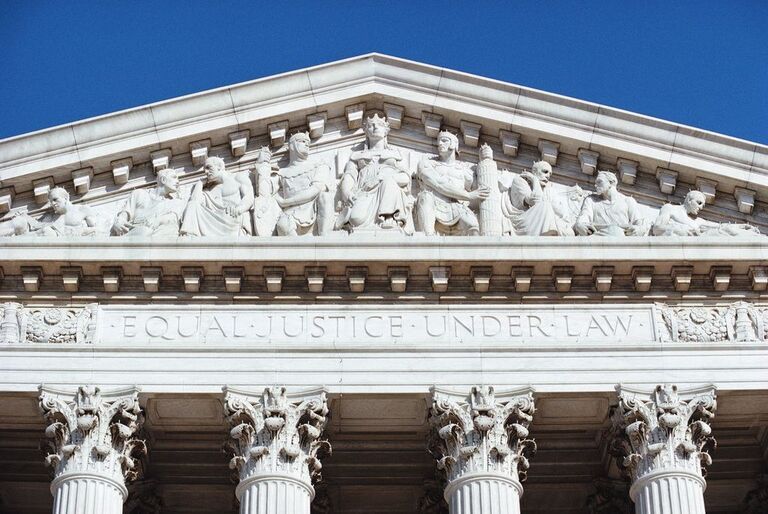 As a defendant in a criminal prosecution, you will have a number of important decisions to make throughout your case. One of the most important of those decisions is the decision to take your case to trial. Once that decision has been made, however, your fate rests in the hands of the jurors who make up the final jury. At the end of the case, the jury members are dismissed and the judge moves on to sentencing if you were found guilty. That may appear to be the end of the case; however, if you are the Defendant you may still have an important option available to you – appealing your case. Although most people are familiar with the concept of an appeal, the appellate process itself is foreign to most people. As a defendant, it may become extremely important to learn more about the appeals process if you are convicted at trial. Toward that end, the criminal attorneys at Petersen Criminal Defense Law explain your right to appeal and provide an overview of the appeals process in Nebraska.
As a defendant in a criminal prosecution, you will have a number of important decisions to make throughout your case. One of the most important of those decisions is the decision to take your case to trial. Once that decision has been made, however, your fate rests in the hands of the jurors who make up the final jury. At the end of the case, the jury members are dismissed and the judge moves on to sentencing if you were found guilty. That may appear to be the end of the case; however, if you are the Defendant you may still have an important option available to you – appealing your case. Although most people are familiar with the concept of an appeal, the appellate process itself is foreign to most people. As a defendant, it may become extremely important to learn more about the appeals process if you are convicted at trial. Toward that end, the criminal attorneys at Petersen Criminal Defense Law explain your right to appeal and provide an overview of the appeals process in Nebraska.
Your Right to Appeal — Appeal by Right and Appeal by Leave
You may have heard about the “right to appeal” in a criminal case. You do have an absolute right to appeal a criminal conviction in the United States. It is important, however, to understand that there are actually two types of appeals, and appeal by right and an appeal by leave. An appeal by right refers to an absolute right granted to you by statute or by an underlying Constitutional principle. The court cannot refuse to consider an appeal by right. Conversely, the court can refuse to consider an appeal by leave. The court has the discretion to grant or to deny an appeal by leave. In a single criminal case, it is common to have both routes available at some point throughout the appeals process, an appeal by right and an appeal by leave.
For example, a defendant who is convicted at trial in a state court has a right to appeal to the state’s intermediate level court. In the State of Nebraska, that means the Court of Appeals where a three-judge panel will review the case. If the Court of Appeals upholds the trial court conviction, a defendant may ask the state’s highest court, in this case the Nebraska Supreme Court, to hear the case. The Nebraska Supreme Court may grant leave to appeal but is not required to do so. The same applies to the highest court in the land, the Supreme Court of the United States (SCOTUS). If the Nebraska Supreme Court upholds the lower court decisions a defendant may petition SCOTUS; however, SCOTUS is not required to accept the case for review.
Your Right to Appeal Does Not Equal the Right to a New Trial
One of the biggest misconceptions about the appellate process is the belief that an appeal provides the defendant with the opportunity to effectively try the case again in front of a higher court. Nothing could be farther from the truth. When you appeal a conviction, you must allege an error that occurred during your trial upon which the higher court could provide relief, including legal error, juror misconduct, or ineffective assistance of counsel. Legal errors may result from improperly admitted evidence, incorrect jury instructions, or lack of sufficient evidence to support a guilty verdict. Moreover, the error committed at the trial court level must have been substantial. A “harmless” error will not support an appeal.
How Does an Appeal Work?
The appeals process includes a number of very important deadlines. While many trial courts are lenient with statutory time frames, the appellate time frames are usually strictly adhered to by the court, starting with the time within which you have to file your initial Notice of Appeal – 30 days. If you fail to file within the deadline you forever waive your right to appeal.
The appellate process is one of review, not trial. The record of trial will be requested at the time the defendant files the Notice of Appeal. A transcript of the trial, along with everything else admitted at trial (evidence, exhibits etc.) is then sent up to the Court of Appeals. Both parties will also prepare a brief outlining their respective arguments. Sometimes, the court will order, and/or the parties will request, oral arguments in support of their briefs. The Appellate Panel will render its decision based on everything submitted and/or argued during oral arguments.
Contact the Criminal Attorneys at Petersen Law Office
If you have been charged with a criminal offense in the State of Nebraska, consult with an experienced Nebraska criminal defense attorney as soon as possible to ensure that your rights are protected. In Nebraska contact Petersen Criminal Defense Law 24 hours a day at 402-509-8070 to discuss your case.


